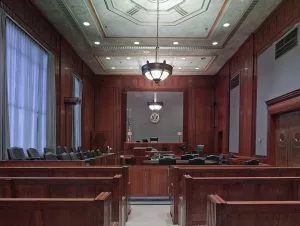
The Fifth District Appellate Court issued a recent decision in Eyster v. Conrad finding that a deceased defendant’s discovery deposition could be introduced as substantive evidence at trial in a personal injury suit. At issue in Eyster was the lower court’s finding that the introduction of the discovery deposition would not do substantial justice between the parties and therefore could not be used as evidence. The Fifth District reversed and held that the trial court misapplied the discovery rule.
As Illinois is the only state that differentiates between discovery and evidence depositions, the ability to use a discovery deposition as evidence at trial is a unique issue faced by Illinois practitioners. The limited purposes for which a discovery deposition may be used as evidence are enumerated in Rule 212(a). Under Rule 212(a)(5), a discovery deposition may be used as evidence at trial “if the court finds that the deponent is not a controlled expert witness, the deponent’s evidence deposition has not been taken, and the deponent is unable to attend or testify because of death or infirmity.” A court must also find that the evidence sought to be introduced would do substantial justice between the parties.
In Eyster, the plaintiff commenced a personal injury suit in 2014 against the defendant alleging that the defendant’s negligent operation of his vehicle caused an accident between the parties and resulted in injuries to the plaintiff. In May of 2015, the plaintiff took the discovery deposition of the defendant. During the deposition, the defendant provided testimony that reflected he may have been negligent while driving his car. Two years later, the defendant died, and the trial court appointed a representative for the defendant to defend the suit. An evidence deposition of the defendant never took place.
The representative subsequently moved for summary judgment arguing, among other things, that the plaintiff could not present evidence of the decedent’s negligence because the decedent’s discovery deposition was not admissible as substantive evidence and the plaintiff could not satisfy the requirements for its admission under Rule 215(a)(5). The representative argued that Rule 212(a)(5) is only applicable in rare but compelling, circumstances. The trial court agreed and entered summary judgment in favor of the decedent’s estate finding that “Plaintiff knew of defendant’s age and had over two years to take [his] evidence deposition but failed to do so.”
On appeal, the Fifth District was asked to address whether the admission of the decedent’s discovery deposition would do substantial justice between or among the parties. In Eyster, there was no evidence that the decedent was failing in health, suffering in age-related illness, or that death was imminent. The decedent understood the questions that were posed to him at his discovery deposition and his counsel did not ask him any follow-up questions or attempt to clarify the decedent’s testimony. Further, the depositions of both parties had taken place under applicable discovery rules such that the danger of fraudulent testimony was unlikely. Under these circumstances, the Fifth District held that the use of the decedent’s discovery deposition as substantive evidence was required to obtain substantial justice between the parties. In essence, the Fifth District excused the plaintiff’s failure to conduct the defendant’s evidence deposition prior to his death.
Parties need to realize that the ultimate decision to allow for the introduction of a discovery deposition as evidence is left to the sound discretion of the court. A litigant could face the possibility of being unable to prove his or her case if he or she intended to rely on the deceased’s deposition testimony as evidence and the trial court bars its introduction.
For more information on our personal injury practice, click this link.

"*" indicates required fields